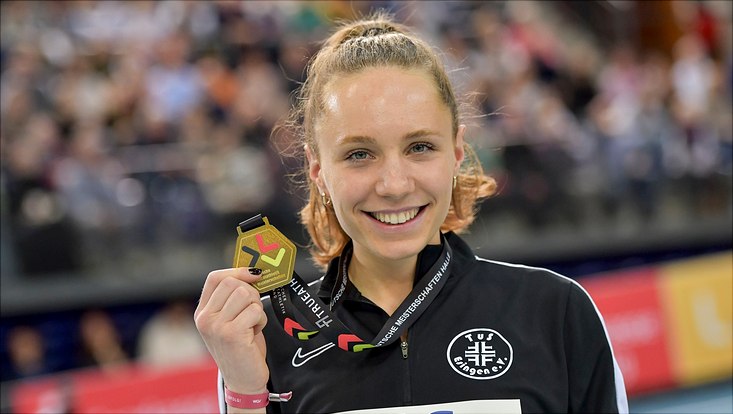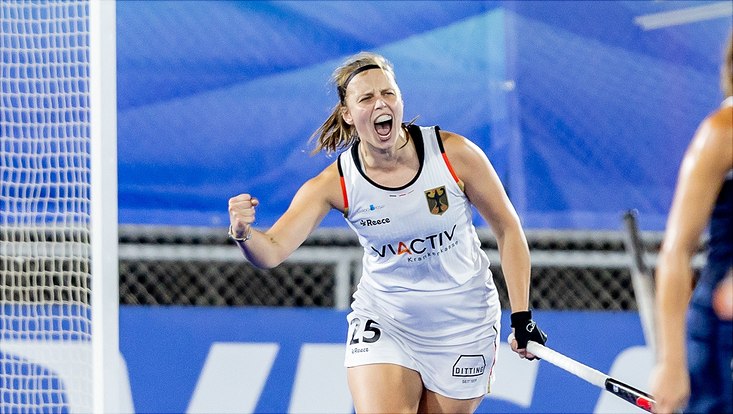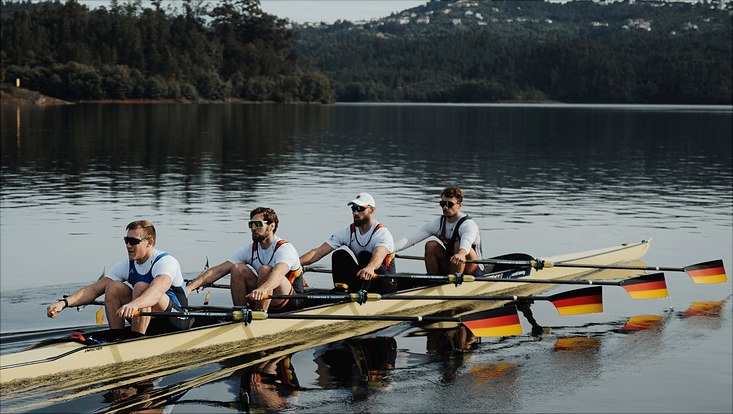Student athletes: balancing term papers and Olympia“I Would Have Been Fast Enough but Got Injured.”
10 July 2024, by Anna Priebe

Photo: Kai Peters
From 26 July to 11 August, the Olympic Games 2024 will take place in Paris, France. The German Olympic team also includes University of Hamburg students who are set to race for medals. Altogether 30 elite athletes are enrolled at the University. Three of them talk about juggling studies, training, and competitions. This time, middle-distance runner Alina Ammann.
Age: 26 years
Sports type: track and field (800m mid-distance running)
Degree program: Master of Science in Psychology with a Focus on Clinical Psychology and Psychotherapy
Previous successes, among others: German 800m champion 2023; Schleswig-Holstein athlete of the year 2023; German 800m indoor champion 2024
To qualify in my distance for the Olympics you have to make the 800m at a 1:59,3 pace. I am the reigning German mid-distance indoor and outdoor champion and am sure I would have been fast enough. But in April, my hip and pelvis started to hurt so badly that I could not run, and I have not competed at all ever since.
This came as a blow, for I know my potential but cannot prove it. Also, it keeps me from the sport I love—my life centers around sport, it’s what I like best. Whenever I get frustrated, I just take a run, which I can’t do right now. But I've found a good way to deal with it.
I had selected my summer semester courses before the injury. Thus, I ended up taking relatively few seminars, as I had planned to fully focus on this important sport season. I am concentrating very much on my studies now, instead, and can feel how this is doing me good. It is fun, it matches my interests, and now, at the master’s level, it is very application-oriented. Gaining skills besides sport has helped me.
“It will take me longer to finish my studies, but that’s okay, because I’m setting my own priorities.”
Nonetheless, combining student life and high-performance sport proves a challenge. I’m studying part-time, but the University sets the course schedule and, naturally, seminars will not be shifted to fit my training schedule. This means I have to balance lectures, at least one training unit per day, regular appointments, such as physiotherapy, and other duties, for instance, meetings with sponsors. Moreover, many courses in my degree program have attendance requirements. As an elite athlete, I can skip classes more often than other students, but I have to make up for the coursework I miss. In case of doubt, I sit my exams on the second date or postpone them for one semester. “It will take me longer to finish my studies, but that’s okay, because I’m setting my own priorities.”
People often ask if I want to be a sport psychologist in future. It’s not my goal right now, but I may end up doing that, as I know from experience that mindset is key. In student life I’ve not yet come across content of sport psychology, but there are other aspects of therapeutic work, such as mindfulness, calm, or building self-confidence, play a significant role in sport.
I will definitely watch the Olympic Games on TV. Right after the injury, I found it a bit hard to watch the competitions I had to cancel, but I’ve managed to distance from that and my interest in sport got the better of me. I am cheering on my German teammates and wish them much success. Most of all, I hope I can run in other competitions this summer.


